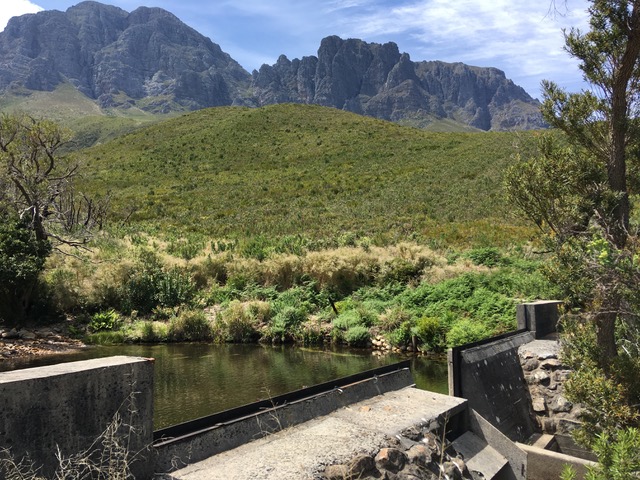Cette publication est également disponible en :
Français

Thesis defended by Astrid Oppliger Uribe – February 23th, 2023 – Institute of Geography & Durability (IGD)
Forests and plant communities play a key role in regulating the hydrological cycle. During the last decades, forest plantations of Eucalyptus species – or Pinus and Acacias – have become predominant in the landscapes of many countries and raised concerns about their detrimental effects on water availability. The phenomenon has become a controversial subject. Such is the case in Chile, where, despite the existence of a wide range of international and national forest hydrology studies, the issue remains somehow contested. As scientific knowledge plays a key role in the development of societies, by providing, for example, the basis of knowledge for decision or policy-making, the science of forest hydrology – which studies how water flows through forests and vegetation communities – might help to understand such contestations of environmental knowledge.
This investigation was initiated to understand the science of forest hydrology, and whether or not in its social production, circulation and application of knowledge it was possible to find reasons for these water and forest contestations. To address this, the investigation draws on three bodies of literature:
- forest hydrology science,
- science studies,
- political ecology.
Empirically, this research is based on three field campaigns in Chile, South Africa and Australia. The research method is structured in three phases. First, it draws on a systematic literature review on Eucalyptus trees – from forest hydrology studies of these three countries. The second and third phases of the research focus on Chile. Inspired by works interconnecting science studies and political ecology, the research operationalises the “field theory” and the “advocacy coalition framework” as theoretical tools to analyse the social production, circulation and application of scientific knowledge of forest hydrology, its governance, and policy-making. In this regard, the forest hydrology science and policy of the Forest Plantation Protocol (FPP) in Chile are taken as a case study.
Results are presented in three chapters.
First, results demonstrate that most scientific studies confirm that Eucalyptus trees have higher water use rates than other land covers such as native forests or scrublands, agriculture, grassland, wetland vegetation, and other plantation tree species such as Pinus radiata or Acacias. These hydrological results hold irrespective of whether the Eucalyptus trees are present as native or non-native trees. The review suggests that variations and nuances in these findings may result from variations in the study design, notably on bio-environmental and forest management factors.
Second, the investigation on the production and circulation of knowledge in the forest hydrology field reveals the presence of knowledge producers from academia, government and forestry companies. These actors contribute and contest knowledge in different ways. Some high-level governmental actors claim not be aware of the existence of forest hydrology research in the country. Other researchers for their part, acknowledge the existence of several forest hydrology studies and the effects of forestry plantations on water resources, but some challenge the legitimacy and scientific authority of these forest hydrology studies in different ways. The investigation shows the existence of two scientific trends or approaches within the forest hydrology field: the ecosystem approach and the forestry hydrogeology approach. It also demonstrates that external political-economic relations within which the field is embedded, shape the production and circulation of the forest hydrology knowledge, and some of its practices challenge its relative autonomy.
Third, the research on the circulation and application of forest hydrology knowledge in the policy-making of the FPP demonstrates that the knowledge listened to is a combination of forestry hydrogeology and ecosystem science approaches. Both approaches correspond to two opposing coalitions on water and soil regulation issues in the FPP: forestry industry versus governmental actors, and each of their allies. Most of the invited academics supported the industrial coalition, as did some governmental actors. It is demonstrated that some academics deny knowledge and generate doubt on certain issues. Despite this, it is demonstrated that scientific knowledge played a role in the policy production through the circulation and the application of scientific articles to support the policy outputs. Paths to policy change, are a combination of external events (fires in 2017), some learning and a process of negotiation where socio-economic criteria are also applied. The research also shows that external events can relatively shift the balance of negotiation powers, as well as that previous policy or agreements can strategically establish negotiation margins of the policy outcomes.
This theoretical and empirical investigation contributes to the literature in three ways. First, it contributes to understanding forest hydrology discussions. Second, it empirically and geographically furthers research in political ecology and sciences studies working on production, circulation and application of environmental knowledge. Third, it contributes to the work of political ecology and science studies by operationalizing the concepts of “the field theory” and the “advocacy coalition framework”, highlighting the role of scientific knowledge, its governance and role in policy-making.
Leave a Reply